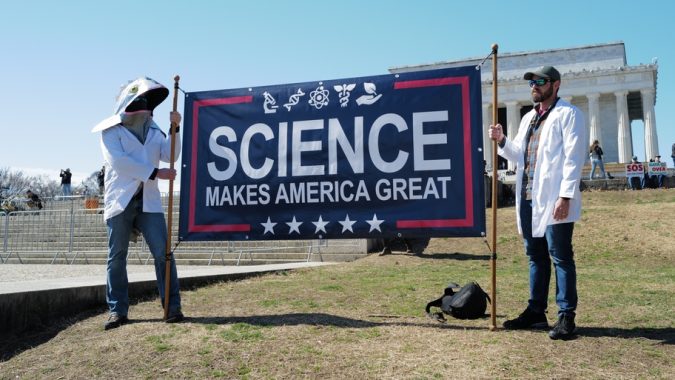
(Source: Shutterstock)
A report in the prestigious science journal Nature suggests a brain drain has started in the U.S., with fewer scientists applying for positions in the U.S. and an increase in applications from U.S.-based scientists for positions abroad.
The report — Exclusive: a Nature analysis signals the beginnings of a US science brain drain — published this week suggests President Trump’s aggressive science upending spending cuts and policy are to blame. The cuts are disrupting the U.S. standing in the worldwide science community and spurring efforts by other countries to attract U.S.-based science talent, suggests the report:
“Researchers in the United States are seeking career opportunities abroad as President Donald Trump’s administration slashes science funding and workforce numbers, finds an analysis of Nature’s jobs-board data.
“Data from the Nature Careers global science jobs platform show that US scientists submitted 32% more applications for jobs abroad between January and March 2025 than during the same period in 2024. At the same time, the number of US-based users browsing jobs abroad increased by 35%.”

(Source: Nature)
Nature reports that applications from US scientists seeking career opportunities in neighboring Canada increased by 41% between January and March 2025 compared with the same period in 2024. By contrast, applications from Canadian researchers for jobs in the United States dropped by 13%, according to the report.
Not surprisingly, many U.S. scientists, senior and junior, are worried about their futures and the future of U.S. science. External collaborators are also more wary of working with or traveling to the U.S. At least one international collaboration is rethinking having the next meeting in the U.S.
Nature cited the example of chemical engineer Valerie Niemann as one of many looking beyond the United States to develop her career. “This month, she moved from Stanford University in California to take up a postdoctoral position at the University of Bern. In the United States, she says, “people don’t know how long their postdocs will be. We can’t apply for fellowships because we don’t know how long they’re going to exist.”
Longtime HPC leader William Gropp, director of the National Center for Supercomputing Applications (NCSA), told HPCwire, “One of the advantages that the US has had is that researchers from around the world wanted to work in the US and be part of our innovation ecosystem. This report in Nature shows that we are in danger of losing that advantage to others that value and support open scientific research.”
Rick Stevens, associate laboratory director and Argonne Distinguished Fellow, Argonne National Laboratory, said, “My view on this is that if we truly want to lead the world and triumph over competitors, we will need to put all hands on deck and this means capturing the imagination of everyone that can contribute to building the best HPC, AI and Quantum capability in the US. We need to create an environment that attracts the best and brightest from around the world.”
Some European institutions are scrambling to attract what might be an “exodus of scientific talent” from the United States, according to the Nature report: “In early March, for example, Aix-Marseille University in France, launched the Safe Place for Science initiative. It has allocated €15 million (about US$17 million) from the university’s budget to sponsor 15 researchers working on climate, health, the environment and social sciences.”

(Source: Nature)
The U.S. science spending cuts take many forms, all of which eventually circle back to supporting scientists and scientific work. One example is the ongoing NSF budget dispute over construction of the Horizon supercomputer at TACC, one of several large-scale initiatives supported through NSF’s Major Research Equipment and Facilities Construction (MREFC) account. Most of the $234 million allocated to the fund this year was expected to continue Horizon’s development. Now those plans are in doubt. (See HPCwire coverage, NSF Budget Dispute Threatens Progress on TACC’s Horizon System)
The Nature report, written by Laurie Udesky and Jack Leeming, is an important read for U.S. scientists.
Link to Nature report, https://www.nature.com/articles/d41586-025-01216-7.
Figures sourced from the Nature article.
This article first appeared on HPCwire.

